Paper/Abstract Submissions are now CLOSED.
Call for Papers
- The Proceedings of TBC 2017 will publish abstracts only without publishing the full-length manuscripts to protect from "prior publication".
- Selected papers will be invited to a special article of JAMIA.
- All accepted papers of TBC 2017 will be recommended to be published as journal papers by Journal of the American Medical Informatics Association (JAMIA), Journal of Biomedical Informatics (JBI), BMC Medical Genomics, BMC Medical Informatics and Decision Making, BioData Mining, Healthcare Informatics Research, and Genomics & Informatics.
* TBC does not publish papers on the conference day, but has 3-month revision process.
Paper Submission
- Online Submission System: https://easychair.org/conferences/?conf=tbc2017
If you do not have an EasyChair account, please create an account here. - The manuscripts must be submitted in PDF format.
- At least one of the authors need to register by the Registration date.
- Paper submission due on May 31, 2017 June 16, 2017
- Full papers are limited to 12 pages, including title, abstract (250 words or less), figures, tables, text, and bibliography. The first page should give keywords, authors' postal and electronic mailing addresses. Papers must not have been previously published and must not be currently under consideration for publication elsewhere
- Papers are to be named: Paper_LastName_FirstName_AbbreviatedTitle or keywords.PDF
- Suggested Template available for download here
Call for Abstracts (Platform or Poster Presentations)
- The Proceedings of TBC 2017 will publish abstracts.
- Selected abstracts will be invited to platform presentations at TBC. Other accepted abstracts will be invited to poster presentations.
- When preparing accepted posters, please note that your poster should not exceed the following dimensions: 27" (68.58 cm) wide x 34" (86.36 cm) high. This is a portrait/vertical format.
Abstract Submission
- Online Submission System: https://easychair.org/conferences/?conf=tbc2017
If you do not have an EasyChair account, please create an account here. - The abstracts must be submitted in PDF format. At least one of the authors need to register by the Registration date.
- Abstract submission due on May 31, 2017 June 16, 2017
- Abstracts are limited to 250 words or less. The first page should give keywords, authors' postal and electronic mailing addresses. Abstracts must not have been previously submitted to other conferences or meetings.
- Abstracts are to be named: Abstract_LastName_FirstName_AbbreviatedTitle or keywords.PDF
Topics
- Precision Medicine
- NGS for Personal Genomics, Cancer Genomics and Metagenomics
- Rare and Common Variants of Human Genome
- Epigenomics, non-coding RNAs, and DNA methylation analysis
- Genome-Phenome-Envirome Associations
- Microarray analysis and functional genomics for disease
- Biomarkers, Drug Discovery and Pharmacogenomics
- Biomedical Text/Data Mining and Visualization
- Network Biology/Medicine and Pathway/Regulation Analysis
- Biomedical Intelligence, Clinical Informatics, and Health Record
- Semantic Biology/Medicine and Biomedical Ontologies
Proceedings and Publications
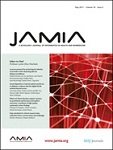 |
JAMIA (Journal of American Medical Informatics Association) is AMIA's premier peer-reviewed journal for biomedical and health informatics. Covering the full spectrum of activities in the field, JAMIA includes informatics articles in the areas of clinical care, clinical research, translational science, implementation science, imaging, education, consumer health, public health, and policy. JAMIA's articles describe innovative informatics research and systems that help to advance biomedical science and to promote health. Case reports, perspectives and reviews also help readers stay connected with the most important informatics developments in implementation, policy and education. |
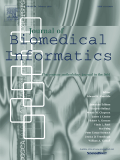 |
The Journal of Biomedical Informatics has been designed to reflect a commitment to high-quality original research papers, reviews, and commentaries in the area of biomedical informatics. Although we publish articles motivated by applications in the biomedical sciences (for example, clinical medicine, health care, population health, imaging, and translational bioinformatics), the journal emphasizes reports of new methodologies and techniques that have general applicability and that form the basis for the evolving science of biomedical informatics. |
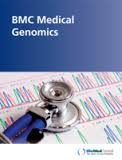 |
BMC Medical Genomics is an open access journal publishing original peer-reviewed research articles in all aspects of functional genomics, genome structure, genome-scale population genetics, epigenomics, proteomics, systems analysis, and pharmacogenomics in relation to human health and disease. |
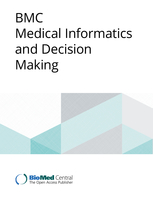 |
BMC Medical Informatics and Decision Making is an open access journal publishing original peer-reviewed research articles in relation to the design, development, implementation, use, and evaluation of health information technologies and decision-making within the healthcare setting. |
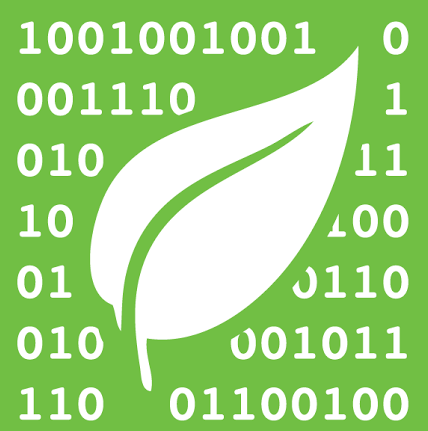 |
BioData Mining is an open access, peer reviewed, online journal encompassing research on all aspects of data mining applied to high-dimensional biological and biomedical data, focusing on computational aspects of knowledge discovery from large-scale genetic, transcriptomic, genomic, proteomic, and metabolomic data. Impact factor: 1.64 |
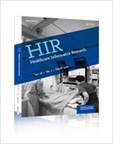 |
Healthcare Informatics Research is the official journal of the Korean Society of Medical Informatics (KOSMI). The Journal provides a national and international medium for dissemination of original results and interpretative reviews concerning the field of healthcare informatics. The scope of the journal covers information systems, computer-aided decision support systems, health information infrastructure, biomedical engineering and Bioinformatics research. |
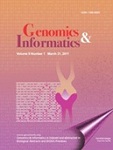 |
Genomics & Informatics is the official journal of the Korean Genome Organization (KOGO). It is published four times a year in a printed version and on-line. Genomics & Informatics welcomes high-quality research papers presenting novel data on the topics of gene discovery, comparative genome analyses, molecular and human evolution, informatics, genome structure and function, technological innovations and applications, statistical and mathematical methods, cutting-edge genetic and physical mapping and DNA sequencing, and other reports that present data where sequence information is used to address biological concerns. |






